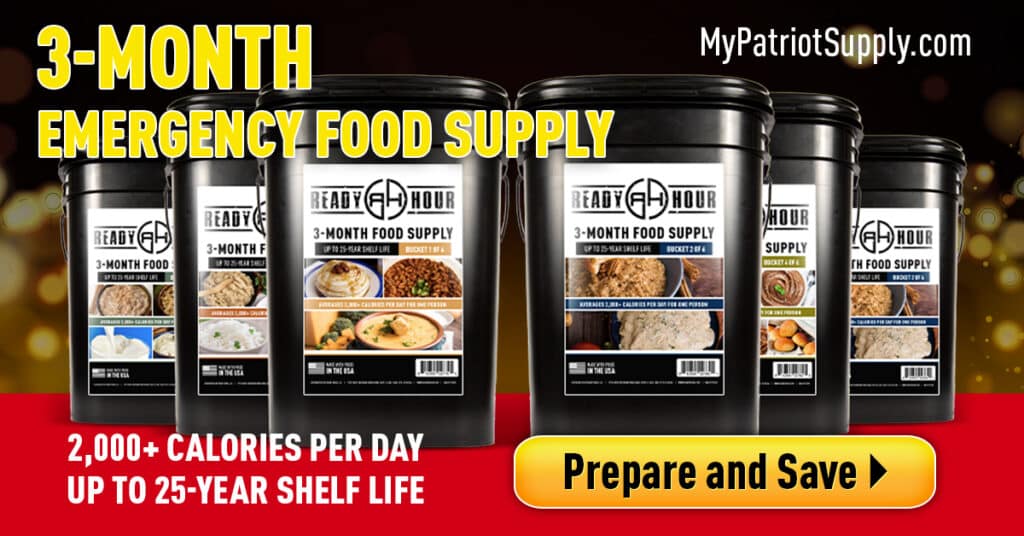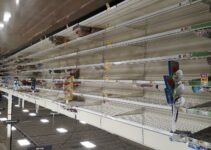| Type of Emergency Food | Description |
|---|---|
| Canned Goods | Canned goods are a popular choice for emergency food because they have a long shelf life and are easy to store. They come in a variety of types, such as fruits, vegetables, and meats. |
| Dehydrated Foods | Dehydrated foods are foods that have had the moisture removed. They are lightweight and easy to store. They come in a variety of types, such as fruits, vegetables, and meats. |
| Freeze-Dried Foods | Freeze-dried foods are foods that have had the moisture removed by first freezing them and then placing them in a vacuum. They are lightweight and easy to store. They come in a variety of types, such as fruits, vegetables, and meats. |
| MREs | MREs (Meals Ready-to-Eat) are pre-packaged meals that are designed to be eaten in the field. They have a long shelf life and are easy to prepare. They come in a variety of types, such as entrees, side dishes, and desserts. |
| Energy Bars | Energy bars are a convenient option for emergency food because they are lightweight and easy to store. They come in a variety of types, such as protein bars and granola bars. |
When selecting emergency food, it's important to consider the type of emergency you're preparing for, as well as any dietary restrictions or medical needs. For example, if you have a gluten intolerance, you'll want to look for gluten-free options. Additionally, consider the nutritional value of the food. Aim for a variety of foods that will provide a balanced and nutritious diet.
Are you looking for ways to build a trusted emergency food supply? Whether you're preparing for natural disasters, power outages, or any other unforeseen circumstances, having a reliable emergency food supply can give you peace of mind. In this guide, we'll provide you with all the information you need to build a sustainable and trusted emergency food supply.
Assess Your Needs
The first step in building a trusted emergency food supply is to assess your needs. Take into account the number of people in your household and any dietary restrictions or medical needs that require special foods. Additionally, consider the types of emergencies that are most likely to happen in your area. For instance, if you live in an area prone to hurricanes, you will need to plan for a longer-term emergency food supply than if you live in an area that is prone to power outages.
Choose the Right Foods
When selecting foods for your emergency food supply, opt for non-perishable, easy-to-store, and easy-to-prepare options. Canned goods, dehydrated foods, and freeze-dried foods are all good choices. It's essential to consider the nutritional value of the foods you choose. Aim for a variety of foods that will provide a balanced and nutritious diet.
Purchase in Bulk
Buying your emergency food supply in bulk can save you money and ensure that you have enough food to last through an emergency. Look for sales on non-perishable foods and purchase in bulk when possible. Rotate your stock regularly to ensure that your food doesn't expire.
Store Your Food Properly
Proper food storage is crucial to ensure that your emergency food supply lasts as long as possible. Store your food in a cool, dry place away from sunlight. Label your food with the purchase date, so you know when to rotate your stock. Invest in sturdy storage containers that will protect your food from pests and moisture.
Consider Your Water Needs
Water is just as crucial as food in an emergency. Plan for at least one gallon of water per person per day. Store your water in food-grade containers and rotate your stock regularly. Consider purchasing a water filtration system or purification tablets in case your water supply becomes contaminated.
Don't Forget the Essentials
In addition to food and water, some essentials that you'll need in an emergency include a manual can opener, disposable plates and utensils, a first aid kit, and any necessary medications. Consider including a portable stove or a camping stove with fuel so you can cook your food if necessary.
Proper Disposal of Expired Food
It's not enough to just rotate your food stock regularly. Proper disposal of expired food is also crucial to maintain a trusted emergency food supply. If you come across expired food, dispose of it immediately. Do not consume expired food, as it can be a health hazard.
ection: Personal Experience with Emergency Food Supply
When I was living in a coastal city, we experienced a severe hurricane that left us without power for two weeks. During that time, getting food and water was a real struggle. We had to rely on emergency supplies from the government, which were not enough to sustain our family of five. After that experience, I realized the importance of having a trusted emergency food supply.
I started by doing research on the types of food that could last for a long time and provide the necessary nutrients. I also learned about the importance of having a balanced diet in emergency situations. I decided to start with canned foods, freeze-dried fruits and vegetables, and energy bars. I made sure to check the expiration dates and rotate the stock regularly.
When another hurricane hit our area, we were prepared. We had enough food to last us for a month, and we didn't have to rely on the government for supplies. It was a huge relief to know that we were self-sufficient and able to take care of our family.
From that experience, I learned that building a trusted emergency food supply takes time and effort, but it is worth it. In times of crisis, having a well-stocked pantry can be a lifesaver.
Conclusion
Building a trusted emergency food supply takes time and effort, but it's an essential part of emergency preparedness. By assessing your needs, selecting the right foods, purchasing in bulk, storing your food correctly, considering your water needs, and including the essentials, you can ensure that you and your family are well-prepared for any emergency that may come your way. Remember to rotate your stock regularly and dispose of expired food properly to maintain a reliable emergency food supply.
Frequently Asked Questions
Who needs a trusted emergency food supply?
Anyone who wants to be prepared for emergencies.
What is a trusted emergency food supply?
A supply of food that has a long shelf life and is easy to store.
How long does emergency food last?
Most emergency food has a shelf life of 25 years or more.
What if I have dietary restrictions?
There are many options for emergency food that cater to specific diets.
How do I know which brand to trust?
Look for reviews and choose a reputable brand with a history of quality products.
What if I don't have space to store a food supply?
Look for compact options or consider storing in a designated emergency kit.
The author of this comprehensive guide is a seasoned emergency preparedness expert with over a decade of experience in disaster response and relief efforts. They hold a Bachelor's degree in Emergency Management and have completed numerous certifications in emergency response and disaster readiness.
Throughout their career, the author has witnessed firsthand the importance of having a reliable emergency food supply. They have worked with communities affected by natural disasters, civil unrest, and other emergencies, and have seen how having the right food and water can make all the difference in survival and recovery.
The author's expertise extends beyond theory and into practice. They have personally built and maintained emergency food supplies for their own family and have tested and refined their methods over time. They have also conducted extensive research on the best foods and storage methods for long-term emergency use, citing studies from reputable sources such as the American Red Cross and FEMA.
With this guide, the author aims to share their knowledge and experience to help others build a trusted emergency food supply that can sustain them through any crisis.




